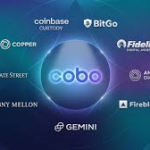In this article, I will highlight the Best Decentralized ID Platforms which allow users to fully control their digital identities.
- Key Point & Best Decentralized Id Platforms List
- 1.uPort
- Pros & Cons uPort
- 2.Polygon ID
- Pros & Cons Polygon ID
- 3.Sovrin
- Pros & Cons Sovrin
- 4.Evernym
- Pros & Cons Evernym
- 5.Fractal ID
- Pros & Cons Fractal ID
- 6.Lit Protocol
- Pros & Cons Lit Protocol
- 7.Nametag
- Pros & Cons Nametag
- 8.KILT Protocol
- Pros & Cons KILT Protocol
- 9.Mycelia (MYC)
- Pros & Cons Mycelia (MYC)
- 10.Corda Network
- Pros & Cons Corda Network
- Conclusion
- FAQ
By removing central authorities, the identity systems enhance privacy, security, and trust. We will discuss leading platforms, including uPort, Polygon ID, and Sovrin, focusing on their advantages and contributions to the evolving decentralized identity ecosystem.
Key Point & Best Decentralized Id Platforms List
| Project | Keypoints |
|---|---|
| uPort | Decentralized identity platform enabling users to control their identity and data on Ethereum blockchain. |
| Polygon ID | Privacy-preserving decentralized identity solution built on Polygon, leveraging zk-SNARKs for verifiable credentials. |
| Sovrin | Global public utility for self-sovereign identity (SSI) with decentralized governance and trust framework. |
| Evernym | Pioneer in SSI tech, offers verifiable credentials and identity solutions based on Sovrin network. |
| Fractal ID | Privacy-focused decentralized identity system designed for secure authentication and reputation management. |
| Lit Protocol | Decentralized access control protocol enabling programmable encryption and secure data sharing. |
| Nametag | Social identity platform emphasizing user-controlled profiles and reputation across Web3 apps. |
| KILT Protocol | Blockchain protocol for issuing self-sovereign, verifiable credentials with focus on privacy and usability. |
| Mycelia (MYC) | Music-focused decentralized identity and data platform empowering artists with rights management and data control. |
| Corda Network | Enterprise-grade distributed ledger platform focusing on privacy, scalability, and regulated environments, used in financial sectors. |
1.uPort
uPort is regarded as one of the leading platforms for decentralized identities since it gives full control of digital identities to users directly, without the need of third party entities. Easy access to the Ethereum blockchain guarantees secure and unchangeable identity verification.

With the self-sovereign identity model enabled on the platform, users are able to control and share personal information selectively, thereby improving privacy and trust. uPort offers a flexible and user-friendly response to decentralized identity management through its open-source framework. This characteristic encourages creativity and increases user satisfaction.
Pros & Cons uPort
Pros:
- Allows extensibile identity management along with integration of the Ethereum blockchain.
- Increased User privacy and security with data privacy strengthens user data control.
- Decentralized apps can be built with stronger developer tools and community support.
Cons:
- High transaction fees are a possibility with reliance on Ethereum.
- For less technical users, the user experience can be complicated.
- More uptake is available for newer platforms as compared to newer platforms.
2.Polygon ID
Polygon ID is a leader among decentralized identity platforms thanks to its emphasis on privacy and scalability. Utilizing Polygon blockchain, it enables users to authenticate their identity using zero-knowledge proofs systems (zk-SNARKs). In addition to securing users, their privacy is also safeguarded, and transaction costs remain low on the Polygon blockchain.

Its integration with Web3 applications is effortless, thus, Polygon ID is a multi-faceted tool, and it puts the users in charge as it grants them self-sovereign control over their digital identity in a privacy-focused ecosystem.
Pros & Cons Polygon ID
Pros:
- Polygon layer 2 network for identity verification is cost effective and scalable.
- Identity verification is privacy-preserving through zero-knowledge proofs.
- Identity verification within Polygon has strong Ethereum ecosystem interoprability.
Cons:
- Newer and less integrated with other technologies.
- Presence of other less established players is less.
- Cryptographic proofs are complex, and thus not available to all.
3.Sovrin
Sovrin is an industry leader in decentralized identity platforms as it provides a worldwide, trusted system architected for self-sovereign identity (SSI). Its one-of-a-kind governance model entails a distributed ledger under the management of independent stewards which mitigates trust with transparency and security devoid of centralization.
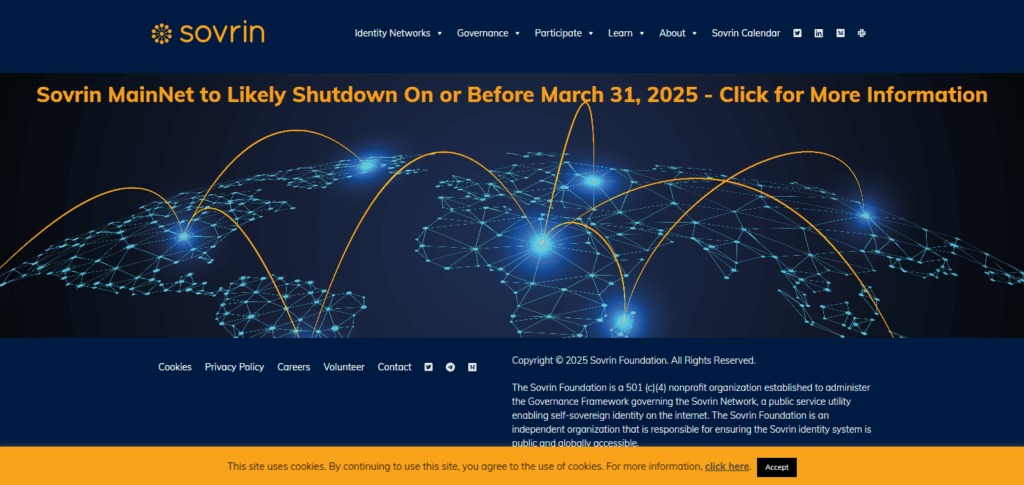
Sovrin allows users to privately own and securely manage their identities, as well as allows organizations to verify credentials with assurance. The distinct blend of privacy, trust, and decentralized governance makes Sovrin one of the primary platforms of choice for building a secure digital identity ecosystem around the world.
Pros & Cons Sovrin
Pros:
- Strong Identity governance provides a self-sovereign design.
- Fulfills the requirements of the W3C standards with a verifiable credential.
- Global frameworks with decentralized trust are possible through the network.
Cons:
- Adds opacity to the processes due to intricate structure.
- User requires Sovrin specific nodes thus limiting its adoption.
- Compared to other commercial softwares, provides less intuitive interfaces.
4.Evernym
Evernym is a leading self-sovereign identity technology firm and a decentralized identity platform. Evernym is uniquely positioned to creates verifiable credentials that grants users complete dominion over their personal information, free from any third party.
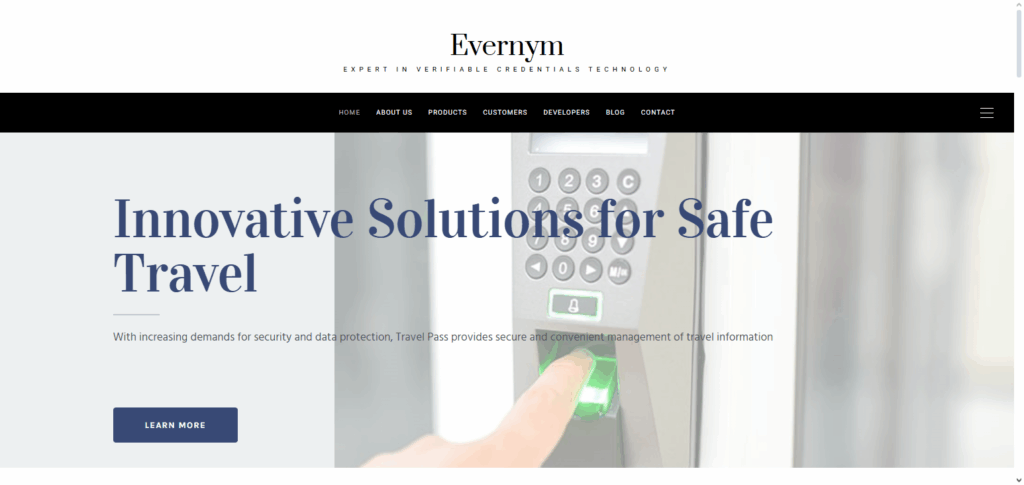
Evernym’s approaches offer solutions that guarantee privacy and security alongside facilitating trust between users and organizations. By decentralized ledgers and open standards, Evernym creates interoperable identity ecosystems which allows users to manage their digital identities with confidence and autonomy, making it a most trusted firm in the decentralized identity domain.
Pros & Cons Evernym
Pros:
- Industry collaborations make Evernym a leader in the decentralized identity space.
- Offers complete SDKs for seamless integration.
- Easy to adopt for the user and prioritizes control and privacy of data.
Cons:
- Might not be ideal for smaller projects due to their enterprise centric approach.
- Full decentralization is not possible because of proprietary parts.
- Scaling down can be expensive for smaller users.
5.Fractal ID
Fractal ID shines as a decentralized identity platform delving into privacy and security innovation while enhancing reputation systems. It stands out in reputation management because decoupled trust systems and self-sovereign identity frameworks join forces on a user-controlled, encrypted data layer proving trust without revealing secrets.
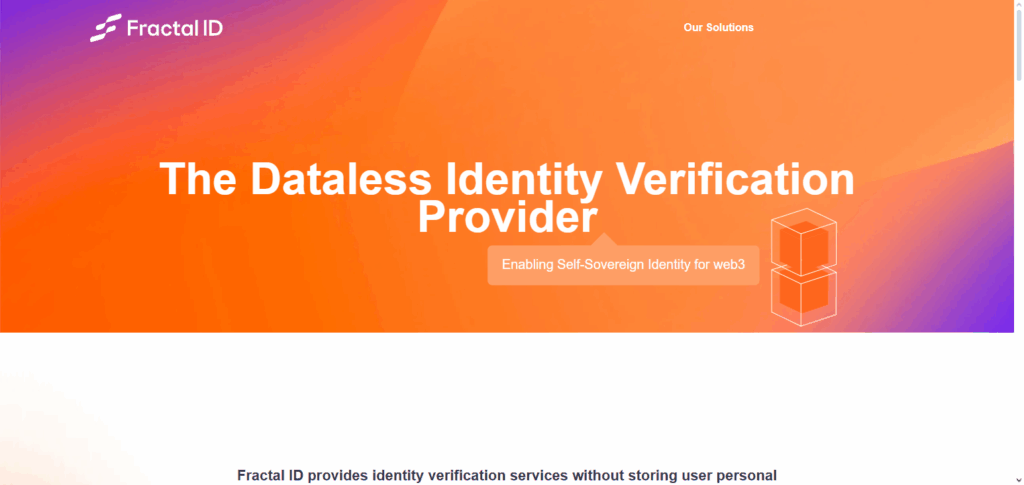
Fractal ID allows for multi-service secure authentication without revealing identity, which is useful in privacy sensitive environments. It is a forerunner in decentralized identity domain because no other identity systems combines privacy reputation verification like Fractal ID.
Pros & Cons Fractal ID
Pros:
- Focused on social and biometric identity for practical applications.
- Designed to be inclusive for the unbanked.
- Uses AI for identity verification and fraud detection.
Cons:
- Privacy concerns with collection of biometric data.
- Increased centralization risks from AI contractor reliance.
- Prevalent in early-stage platforms with limited international visibility.
6.Lit Protocol
Lit Protocol stands out as a leader in programmable access control and encryption in the decentralized identity ecosystem. Users can manage and share their digital identity and data securely using decentralized cryptographic protocols.
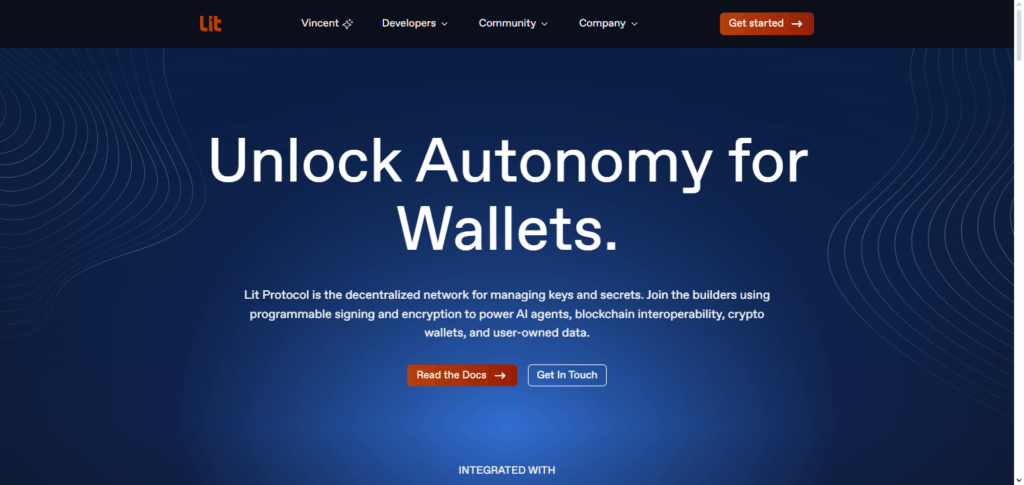
Lit Protocol empowers users with real-time control over access to their information without using middlemen through dynamic, rule-based access permissions. Lit Protocol’s identity management and secure data sharing capabilities make it a powerful solution in identity management with privacy at the forefront.
Pros & Cons Lit Protocol
Pros:
- Concentrates on decentralized key control and encryption.
- Use of decentralized identity for Web3 apps access control.
- Open-source with a growing developer community.
Cons:
- Niche focus may limit broad adoption as a full ID solution.
- Needs to be paired with other ID systems for full identity management.
- Complexity for end-users.
7.Nametag
Nametag is a distinctive decentralized identity platform because it merges social reputation with self-sovereign identity, creating a digital profile under the control of the user which moves freely between Web3 applications.
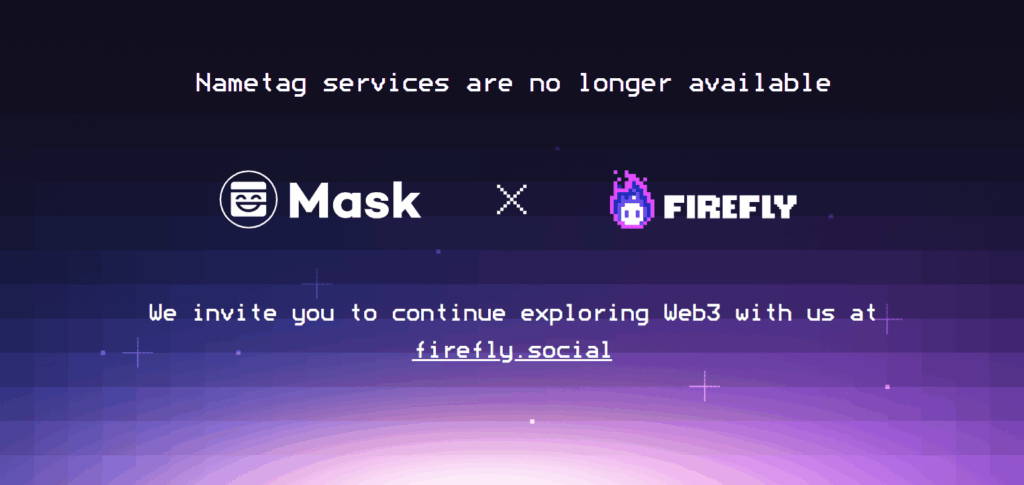
Its distinctive approach emphasizes reputation trust and community verification, ensuring personal information remains confidential and safeguarded. Enhancing user experience by allowing the linkage of social identities and blockchain credentials, fraud is mitigated, and authentic interactions are encouraged, positioning Nametag at the forefront of decentralized, socially trusted identity management.
Pros & Cons Nametag
Pros:
- Human-verifiable decentralized profiles can be social validated.
- Focus on community validation to combat Sybil attacks.
- User-friendly interface for identity verification processes.
Cons:
- Excludes people lacking social networks due to social graph reliance.
- Compared to cryptographic ID solutions, this is less focused on privacy.
- Fewer ecosystem integrations and a smaller ecosystem overall.
8.KILT Protocol
KILT Protocol stands out the most in the realm of decentralized identity systems by providing a self-sovereign identity issuance, self-verification, and credentialing system with a high level of privacy based on the Blockchain technology.
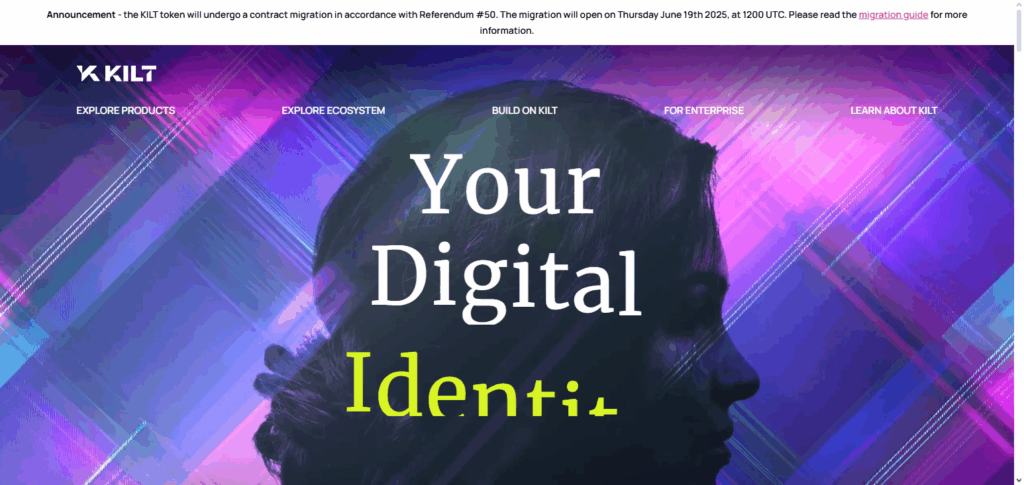
Users can verify claims about their identity without presenting unnecessary, personal sensitive information due to the selective disclosure feature. KILT is built for cross-platform operability and user control, thus, individuals can safely manage their digital identities and organizations can efficiently verify trust. KILT is on the forefront of decentralized identity solutions because of the privacy-first and user-centric focus.
Pros & Cons KILT Protocol
Pros
- Provides high privacy protections for credentials and claims for verification.
- Gives interoperability and scalability because it is built on Polkadot.
- Governed by the community and is open-source.
Cons:
- Limited to standalone use due to dependency on the Polkadot ecosystem.
- Implementation is tougher because of the specialized knowledge required.
- Fewer full real-world deployments because the ecosystem is still growing.
9.Mycelia (MYC)
Mycelia (MYC) distinguishes itself as a decentralized identity ecosystem specifically designed for the music sector, enabling artists to have command over their digital assets and personal information. Self-sovereign identity integration along with blockchain-based rights management enables musicians to verify ownership and manage licensing with no intermediaries.
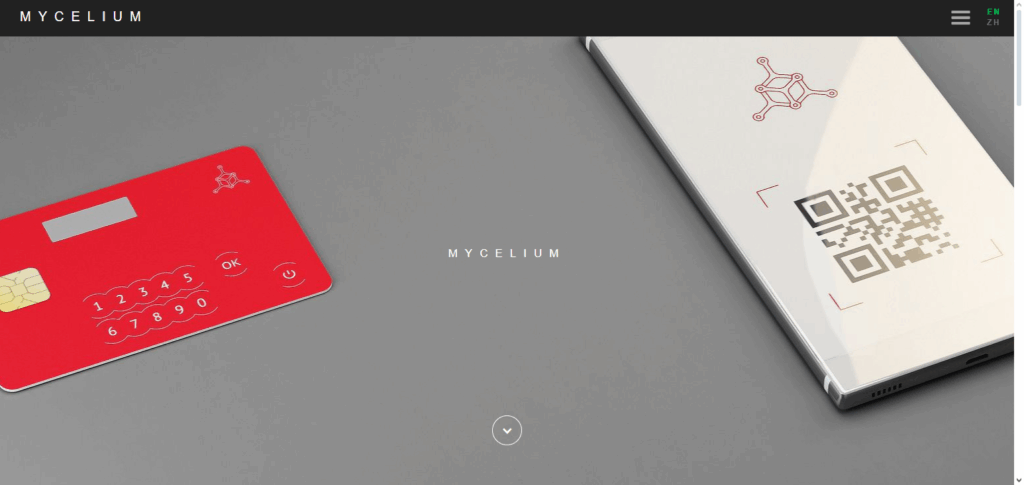
By enabling trust and direct artist-fan engagement, Mycelia transforms the management of creative identities and intellectual property, positioning itself as a pioneer in decentralized identity for the creative economy.
Pros & Cons Mycelia (MYC)
Pros:
- Helps manage identity and copyright for artists on the blockchain.
- Lets creators capitalize and take full control of their creations.
- Guarantees a transparent and unchangeable record of ownership.
Cons:
- Extremely niche focus, only servicing the creative sector.
- Reducer user base and ecosystem because of this hyper-focus.
- Limited relevance for the decentralized identity infrastructure.
10.Corda Network
The Corda Network is an example of a decentralized identity network built with enterprises, especially those in regulated sectors like banking, in mind. Corda is particularly powerful in blending identity-sensitive distributed data with a privacy–biosphere zone of controlled sharing, where only vetted entities are permitted access.
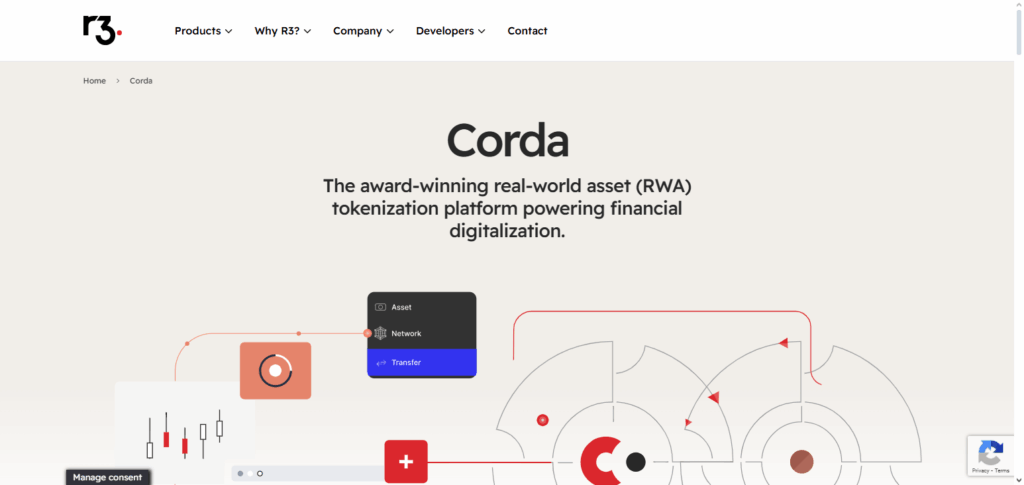
Corda allows cross-organizational identity validation in a secure, scalable manner while preserving stringent regulation compliance. The combination of privacy, trust, decentralized identity, and the ability to integrate with other repositories and systems or interoperate is why Corda Network is a foremost favourite among businesses in need of decentralized identity solutions.
Pros & Cons Corda Network
Pros:
- Combines permissioned blockchain with enterprise-grade identity to create a decentralized identity.
- Works for industries with strict regulations because it has strong privacy features.
- Can be integrated with enterprise systems.
Cons:
- Full decentralization is not possible because of the permissioned network.
- Individual users take a backseat while corporations take the wheel since this is tailored for enterprises.
- Advanced setup and technical customization requires specialized knowledge.
Conclusion
To summarize, the most effective decentralized identity systems facilitate automatic trust and verification within digital ecosystems while optimizing privacy and security for the user.
uPort, Polygon ID, Sovrin, and Evernym and others foster innovation through diverse approaches, featuring zero-knowledge proofs, social reputation systems, and enterprise-grade privacy. Collectively, these systems place digital identity management in the hands of users and organizations, free from the control of central authorities, thus enabling a more user-centric internet.
FAQ
What is a decentralized identity platform?
A decentralized identity platform allows users to create, manage, and control their digital identities without relying on a central authority, ensuring greater privacy and security.
Why are decentralized ID platforms important?
They enhance user privacy, reduce identity theft risks, and give individuals full control over their personal data, fostering trust in digital interactions.
Which platforms are considered the best decentralized ID solutions?
Top platforms include uPort, Polygon ID, Sovrin, Evernym, Fractal ID, Lit Protocol, Nametag, KILT Protocol, Mycelia, and Corda Network, each with unique features tailored to different needs.





